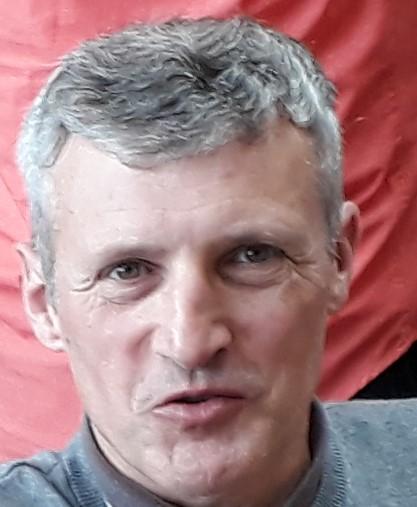
Dr John Eales, Associate Head (Teaching and Learning) in the School of Computing, Electronics and Mathematics at the University of Plymouth is Advance HE's 10,000th Senior Fellow. In this interview, he explains his application process and what Senior Fellowship means to him.
Q1. Why did you decide to apply for Senior Fellowship?
My previous line manager is a Principal Fellow and he set a PDR objective for me to achieve Senior Fellowship. I’ve been at Plymouth for over 28 years, and when I first arrived the training we received resulted in a City & Guilds Course Completion Certificate in Teaching in Higher Education. We felt that it would be beneficial for me to update and upgrade my qualification.
Q2. How has the University of Plymouth supported you in applying for Fellowship?
The University is very keen that all of its lecturers have a recognised teaching qualification. When I first put myself forward I was advised to attend a couple of workshops run by a colleague in Teaching and Learning Support (TLS). I was given some really helpful advice and guidance there. But that was five years ago – I had to put my fellowship on hold because of some major changes at the University which led to substantial calls on my time. I picked it up again last year and by that point things had changed in TLS; Dr Oliver Webb now ably leads the scheme, and he has been very supportive. I also attended a surgery run by Priska Schoenborn, another colleague from TLS, and she really helped in motivating me to complete the application.
Q3. What were your impressions of the process of submission?
Having completed and received Fellowship, I’m very pleased that I did it, but during the application process I had a bit of a love/hate relationship with it. The really positive part was that it gave me the opportunity to reflect on what I’ve achieved over a long period of time. The negative side of the application was the amount of work involved, not least having to dig back for specific details. However, this did lead me to reconnect with people I’ve worked with previously and they were really kind in providing me with quotes for my case studies.
Q4. What advice would you pass on to others applying for Fellowship?
Give serious consideration and reflection to three things: the first is where you pitch yourself, it’s important to reflect on which category of Fellowship is most appropriate for you; the second is being clear what you have on your CV – ask if there is anything you could do to strengthen your case; the third is the workload. It’s a very worthwhile thing to do but don’t underestimate how much work is involved on top of the day job. To manage this I’d advise getting as much help as you can, the people in teaching and learning support were very helpful to me and were available with answers to any questions that I had. Don’t be afraid to ask for help and make use of the support available to you.
Q5. In your application did you highlight any specific career accomplishments you’d like to share?
As I’ve already said, when applying I contacted a number of people who I’ve worked with and asked them for supportive quotes. I was both humbled and flattered to receive very kind feedback from so many of them. I also went back through feedback from students to seek out useful quotes. This included an email that I received completely out of the blue from a former student who now has a lecturing post in Australia. He said that, having seen things from the other side, he wanted to thank me for the teaching that I delivered to him over ten years previously. It’s really gratifying to think that people still recall you for positive reasons after so many years and to realise that you have made good impacts on some people’s lives.
Q6. What does being the 10,000th Senior Fellow mean to you?
I’m not really sure how to answer that. It’s quite incredible that there are now so many academics who are Senior Fellows. I’m pleased to join them. It’s just funny that I’m the 10,000th!
What I’d really like to conclude by saying is that I see myself as someone who is more into evolution than revolution – one of the things about reflecting back over your career (if you count my PhD, that’s over 30 years) is that you realise your style has evolved. I’m not someone who thinks that everything established in Higher Education is bad and everything new is good. There’s a lot to be said for traditional approaches, but you want to build on them. For example, I teach mathematics and while things have changed there will always be a need for whiteboards! The point that I’m trying to make is that a lot of people in my area are put off applying for fellowship as they think that it’s for those who are doing lots of trendy pedagogical things. My case shows that someone with essentially a traditional approach can still be recognised. It’s not about trends, it’s about a commitment to quality.
Find out which category of HEA Fellowship is right for you with the Fellowship Category Tool. The Fellowship Category Tool has been designed to help you understand which category of Fellowship most closely reflects your current practice.